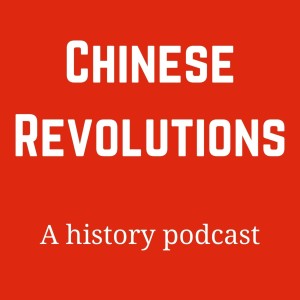
Setting the Stage for Chinese Revolutions
We’re going to set the stage, explore a little of the world that is to change, when the revolutionary fun gets going.
Geography of China and Chinese History
Chinese geography shaped what connections with the outside world were possible. When the British and other Europeans roll up on the Chinese coast, it's pretty much the one place they were likely to meet.
Chinese Land Barriers
- Tibetan Plateau and Central Asian Steppe formidable landward barriers
- Expansion of the Russian Empire brought the Qing Dynasty into contact with a European power
- French intervention in and colonization of Indochina brought them closer to the Qing domains
- Cultural cohesion and ability to control land influenced the shape of the Chinese Empire
Qing Empire
In the Chinese tributary system, states surrounding China sent "tribute" to the Chinese court in exchange for tokens of political favor and legitimacy (titles, robes, etc.)
Part of the difficulty between the Qing and Europeans seeking to make contact was the friction between internal and external politics. They wanted to keep external enemies from causing trouble, and the Qing weren't really playing the game foreign powers were playing.
The Qing also really weren't running a mercantile sea power. The Europeans they had contact with were.
Canton System (1757-1842)
Trade focused in Canton as a mixture of convenience for Europeans (closer to SE Asian colonies) and Chinese imperial policies.
Europeans want to trade, Chinese want to trade, Chinese emperor wants to maintain control and balance between interests of everyone involved.
When you create an organization to command things on the ground, interests on the ground can work through the same thing back up to influence YOU.
Local oligarchs were a kink in the hose, making it hard for clear communication between foreigners and the Chinese authorities about how to open up the relationship for greater potential.
Foreign Power Over the Han
Although non-Han dynasties legitimately held the "Mandate of Heaven," it still engendered Han readiness to engage in regime change as a matter of domestic policy.
Chinese Diaspora
- Chinese traders went all over SE and E Asia – Vietnam, Malaysia, Indonesia, Philippines, Korea, Japan …
- Foreigners sometimes employed people from these communities to help them communicate and make contact with the relevant business and government connections to set up trade
- Chinese sailors on foreign ships
- Chinese laborers taken to foreign colonies
- Chinese diaspora fed foreign ideas, money they had earned, other connections back to China in some of the revolutions we’re going to be covering
Foreign exploration and trade missions
- Industrialization, need for export markets, sources of capital
- Development of the joint stock company and the ability to pour resources into exploration of new markets
- Foreign missionary activity
- Introduction of a new set of ideas around which to form weird little cults
What Led to End of the Qing Dynasty
The Qing Dynasty was unable to maintain "political homeostasis" in preserving its regime.
If You'd Like to Support the Podcast
- Subscribe, share, leave a rating. THIS IS FREE!
- Give once, give monthly at www.buymeacoffee.com/crpodcast
- Subscribe to the substack newsletter at https://chineserevolutions.substack.com/
Also...
Please reach out at chineserevolutions@gmail.com and let me know what you think!
Comments (0)
To leave or reply to comments, please download free Podbean or
No Comments
To leave or reply to comments,
please download free Podbean App.